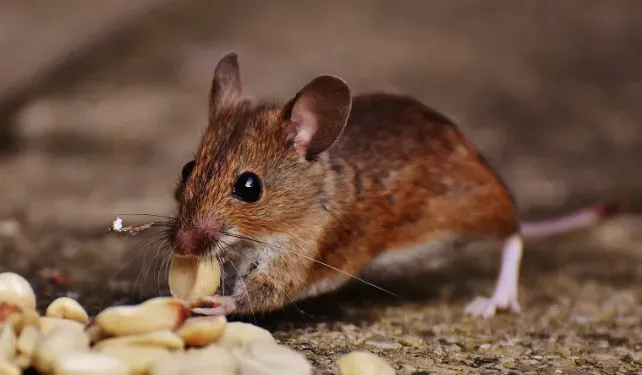Protect Your Home From Hantavirus-Carrying Deer Mice

Deer mice are a common pest in Minnesota. These rodents are especially likely to infest your home this time of year when food and warmth is scarce. While having a pest infestation of any kind is unpleasant, deer mice pose an even greater concern.
Some deer mice carry hantaviruses, which are a group of viruses that can cause a potentially fatal disease in humans known as hantavirus pulmonary syndrome (HPS). This disease starts out like the flu with fever and body aches but then rapidly progresses to cause difficulty breathing, vomiting, diarrhea, and dizziness. Left untreated, HPS can lead to kidney, heart, or lung failure.
Fortunately, this condition is rare, and many patients with HPS recovery fully if they go to the hospital for oxygen therapy. Nevertheless, the best cure is to prevent contracting the disease in the first place.
To protect your home and your family against deer mice and the health risks they present, learn how to recognize, manage, and prevent an infestation.
Recognize the Signs of an Infestation
If deer mice have taken up residence in your home, you will likely notice some signs. Be on the lookout for the following:
- Grease marks. Because mice often have greasy fur, they may leave marks on your walls and baseboards. Look for stains in the basement, which is where deer mice are most likely to be found.
- Droppings. Deer mice feces are about a quarter inch long and have pointed ends. You may find them scattered throughout your home.
- Urine smell. In addition to droppings, mice also leave behind traces of urine. If you notice an unusual urine odor in your basement, a call to the pest control company may be in order.
- Damaged belongings. These mice will use items they find in your home to build nests. Look for damaged upholstery, mattresses, clothes, or paper since these are common nesting materials.
- Caches of nuts and seeds. Deer mice typically store their food near their nests. If you see a pile of nuts, seeds, and pieces of fruit or plants, then a nest is likely nearby.
The more signs you notice, the more mice you probably have in your home. If you only have one or two mice in your house, however, you might not notice a pest problem for a while. That’s why you should be vigilant in inspecting your home — particularly your basement — for signs of pests.
Eliminate Deer Mice From Your Home
Once you or your pest control expert has determined you have a deer mice infestation, take prompt action to address the problem. If you ignore the problem, your infestation could quickly escalate. Deer mice can have up to nine babies a month, and their babies are able to reproduce at only seven or eight weeks.
While you should act fast in eliminating these pests, you don’t want to make mistakes that could expose you to hantavirus pulmonary syndrome. You can contract HPS by coming in contact with the feces or urine of an affected deer mouse. To avoid this risk, follow these safety tips when dealing with a deer mice infestation:
- Open windows and doors to ventilate the room.
- Wear gloves and a breathing mask when cleaning up mice droppings and urine stains and changing traps.
- Avoid vacuuming or sweeping around infested areas since you could stir up HPS-containing dust particles.
- Clean contaminated surfaces with bleach.
- Wash urine- or feces-soiled clothing and bedding in hot water.
- Dispose of or clean gloves used to handle droppings, urine, or dead deer mice.
Because deer mice infestations have to be handled carefully, this job is best left to a pest control expert. A pest control professional will know which methods to use to reduce possible exposure to HPS. In addition, they can advise you on the most effective ways to prevent infestations in the future.
Prevent Future Infestations
While working with your pest control technician to eradicate deer mice, find out how these rodents got in your home so you can keep them from infesting your home again. The Centers for Disease Control and Prevention suggests checking for gaps around doors and windows, under sinks and kitchen cabinets, in the basement, and along your foundation.
If you find any gaps, seal them up immediately. You can use steel wool as a temporary measure. For a more permanent solution, use metal or concrete to seal openings on your home’s exterior. However, don’t use rubber, wood, foam, or vinyl to seal gaps since deer mice can gnaw through these materials.
Don’t overlook tiny holes and gaps either. A deer mouse can chew their way through holes as small as one-fourth inch.
In addition to repairing holes inside and outside your home, schedule preventative pest checkups with your local pest control company. At Paffy’s Pest Control, we offer year-round protection with our regular maintenance plan. Let us help you keep your home free of rodents and other pests — contact us today for more information.







